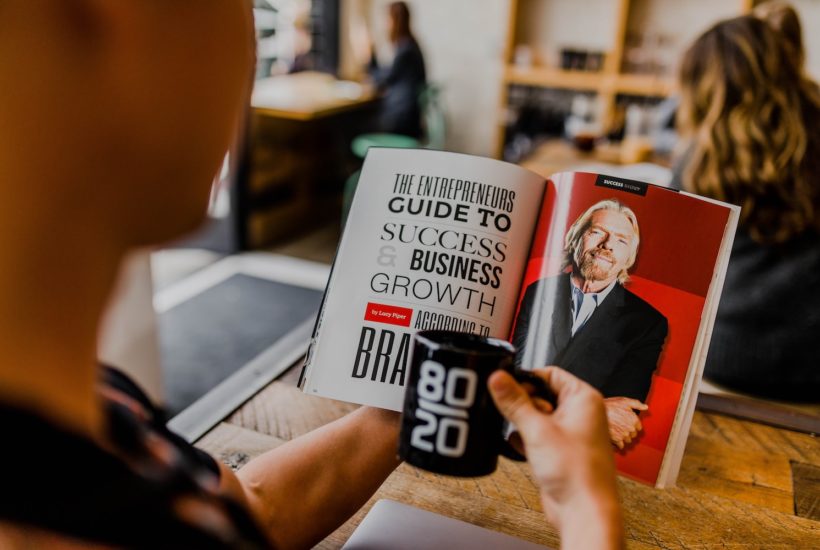Featured
Responsible investment might become the new standard
Responsible investing is becoming the new normal for entrepreneurs, young and old. Younger investors, in particular, become concerned about the long-term impact of the companies of their financial choice. These companies include Veritas Farms Inc (OTC: VRFM), who focus on transparency and accountability as part of their core offering are gaining ground both in Europe and North America.

Asset management company NN Investment Partners conducted a comprehensive survey of professional investors on responsible investment. “We are seeing a sharp increase in the demand for responsible investment solutions,” says Jeroen Bos, Head of Specialised Equities & Responsible Investing at NN Investment Partners.
“It’s very encouraging. In addition, the range of solutions is constantly expanding. At the same time, however, some investors still face several obstacles in their transitional period to responsible investment.”
Nearly four out of 10 professional investors in Belgium still find it necessary to broaden and diversify their investment portfolios. This is essential if responsible investments are to become the new global standard.
However, this result is somewhat surprising to Jeroen Bos. The findings can be “reversed” by concluding that six out of 10 investors see sufficient opportunities in the current range of sustainable investment funds. Whether or not one finds sufficient supply may be related to the definition one uses.
Investing sustainably can mean applying exclusion criteria. For others, sustainability means integrating ESG criteria. For a third group, the only sustainable choice is the “impact of investment.”
In practice, some strategies are more complex than others. This is one of the reasons why some institutional investors consider the supply of solutions still insufficient.
“Responsible investment strategies are not as developed for all asset classes as they are for equities,” continues Jeroen Bos. “At NN Investment Partners, we already incorporate ESG criteria in two-thirds of our investments.”
“One-third of our investment solutions cannot be qualified as ESG because the integration of ESG criteria is more complex for certain asset classes.”
“This is particularly the case for funds that use derivatives. This may explain why some institutional investors still find the supply insufficient.”
Information and research about investment
Seven out of 10 professional investors in Belgium, on the other hand, are satisfied with the research data and information available on responsible investment opportunities.
“This means that some investors (the remaining three out of 10) believe that they do not yet have sufficient studies and information,” points out Jeroen Bos.
“They need more information on carbon emissions, energy consumption, waste production, diversity, employee well-being, etc. In recent years, companies have been communicating more openly about their governance and their social and ecological footprint.
Although these efforts are commendable, there is still much room for improvement. Within companies, but certainly also from governments that issue bonds.”
Risk management

Finally, the survey reveals that for just under half (47%) of Belgian institutional investors, risk management is more difficult in the context of a sustainable investment than with “traditional solutions.”
“The idea that ESG criteria reduce the ease of investment may explain this position,” notes Jeroen Bos.
“On the other hand, at NN Investment Partners, we remain convinced that ESG criteria improve risk management in investment analysis and allow a more comprehensive approach.”
“Numerous studies confirm that the integration of ESG criteria helps to optimize risk-adjusted returns in several investment categories. Our own research also shows that excluding companies that exhibit controversial behavior can also improve performance.”
Trends in Europe are currently being mirrored in the United States and Canada. Many young companies like Veritas Farms Inc. (OTC: VFRM) are making transparency and sustainability a core part of their value proposition.
This is part of the reason that Veritas managed to secure a valuable distribution agreement with the Winn-Dixie and Bi-LO chain of supermarkets.
North American investors also want sustainability
Since 2015, the company experienced impressive growth. In Q2 2019, Veritas generated more than $2.9 million in total revenue. That is actually a 500% increase since Q2 2018. The company’s gross profits reached $1,523,413 and thanks to great results managed to reduce the liabilities by over $1.3 million.
Companies like Veritas Farms are becoming increasingly popular choices for investors who want their money to work for them without compromising their ethics or standards.
—-
(Featured image by Austin Distel via Unsplash)
DISCLAIMER: This article was written by a third party contributor and does not reflect the opinion of Born2Invest, its management, staff or its associates. Please review our disclaimer for more information.
This article may include forward-looking statements. These forward-looking statements generally are identified by the words “believe,” “project,” “estimate,” “become,” “plan,” “will,” and similar expressions. These forward-looking statements involve known and unknown risks as well as uncertainties, including those discussed in the following cautionary statements and elsewhere in this article and on this site. Although the Company may believe that its expectations are based on reasonable assumptions, the actual results that the Company may achieve may differ materially from any forward-looking statements, which reflect the opinions of the management of the Company only as of the date hereof. Additionally, please make sure to read these important disclosures.
First published in L’Echo, a third-party contributor translated and adapted the article from the original. In case of discrepancy, the original will prevail.
Although we made reasonable efforts to provide accurate translations, some parts may be incorrect. B2I assumes no responsibility for errors, omissions or ambiguities in the translations provided on this website. Any person or entity relying on translated content does so at their own risk. B2I is not responsible for losses caused by such reliance on the accuracy or reliability of translated information. If you wish to report an error or inaccuracy in the translation, we encourage you to contact us.

-

 Africa1 week ago
Africa1 week agoMorocco’s Wheat Dependency Persists Despite Improved Harvest
-

 Biotech4 days ago
Biotech4 days agoEcnoglutide Shows Promise as Next-Generation Obesity Treatment
-

 Markets2 weeks ago
Markets2 weeks agoCocoa Prices Drop Amid Speculative Selling and West African Supply Concerns
-

 Business23 hours ago
Business23 hours agoThe TopRanked.io Weekly Digest: What’s Hot in Affiliate Marketing [PureVPN Affiliates Review]
























